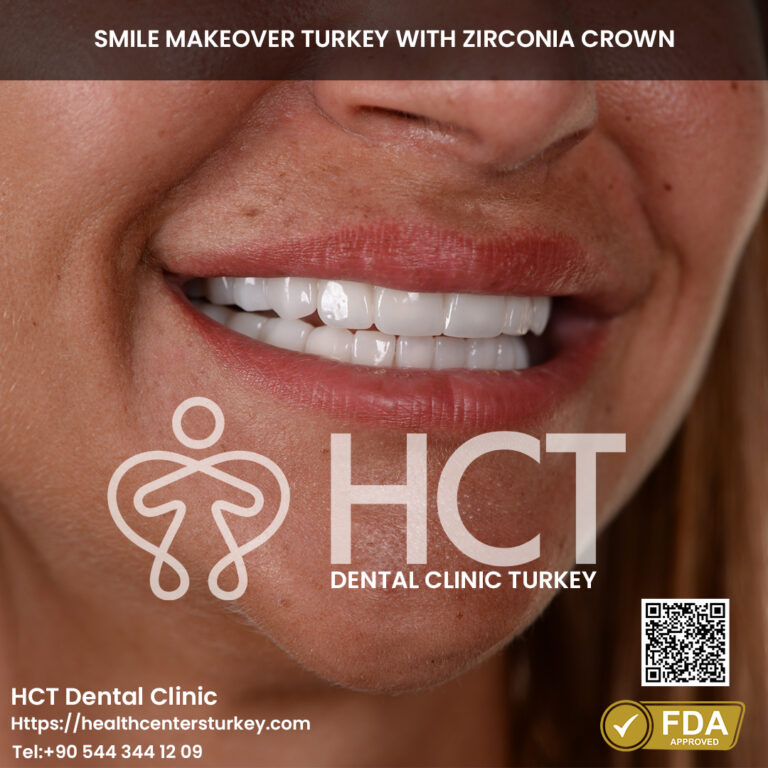Full-Service Dental Evaluations in Antalya
Full-Service Dental Evaluations in Antalya
Blog Article
Uncover Budget-friendly Oral Health Services in Turkey
Dental implants have turn into a popular answer for these trying to replace missing teeth. Understanding how these implants can affect adjacent teeth is important for anybody considering this process, as nicely as for dentists and specialists concerned in dental care.

One vital aspect is that dental implants are designed to be anchored into the jawbone, which implies they are independent of adjacent teeth. Unlike dental bridges, which regularly require the alteration of neighboring teeth, implants can fill the gap with out compromising the health or structure of these surrounding teeth.
This independence helps maintain the integrity of adjacent teeth. When a tooth is misplaced, there could be a natural tendency for neighboring teeth to tilt or shift into the empty space. Such motion can lead to misalignment, which might affect bite and total oral health. By putting an implant, you effectively prevent this potential shift, selling better alignment in the long run.
Increase Your Self-Esteem with Quality Dental Care
Additionally, dental implants assist maintain bone density within the jaw. A natural tooth root offers stimulation to the surrounding bone, maintaining it healthy and robust. When a tooth is missing, the bone can begin to deteriorate as a outcome of lack of stimulation. With a dental implant mimicking a natural root, bone loss could be minimized, which indirectly benefits adjacent teeth by preserving the overall structure of the dental arch.
While dental implants are advantageous, improper placement can influence neighboring teeth. If an implant is positioned too close to a different tooth, it could exert undue strain on that tooth, resulting in discomfort or potential injury. Proper planning and imaging strategies are essential for avoiding such points.
Exceptional Teeth Procedures for Tourists in Turkey
Moreover, maintaining good oral hygiene is essential after receiving an implant. If not properly cleaned, surrounding teeth might become vulnerable to dental points similar to decay or gum disease. This underscores the significance of diligent oral care following the procedure to make sure both implants and adjacent teeth remain wholesome.
Regular dental check-ups are also very important for monitoring the health of surrounding teeth. Dentists can establish any shifts or potential problems early, allowing for well timed interventions. This proactive method ensures that both the implant and adjacent teeth can coexist with out issues.
The Growing Popularity of Dental Treatments
Another consideration is the influence of implants on bite pressure. When a single tooth is missing, the load of chewing could shift to adjacent teeth, potentially leading to put on or strain. Implants restore proper chew dynamics by redistributing forces within the mouth, which can shield surrounding teeth from undue stress.
Some sufferers may increase issues about the appearance of dental implants. Well-placed implants can blend seamlessly with present teeth, bettering overall aesthetics. In contrast, failing to exchange a missing tooth can lead to aesthetic points, together with collapsing of facial structure and adjustments in smile dynamics.
It's also price discussing the psychological features of dental health. Experiencing tooth loss can adversely have an effect on one’s self-esteem and willingness to interact socially. By restoring your smile with implants, you can positively influence not only your oral health but additionally your emotional well-being.
Long-term success of dental implants typically hinges on various components, including the patient's health, maintenance habits, and the quality of the initial process. If adjacent teeth are wholesome and correctly cared for, the chances are high that they will continue to thrive alongside the implants.
Enhance Your Oral Health through Cosmetic Dentistry
In conclusion, dental implants play an important function in not simply restoring individual smiles, but in preserving the health and structure of adjacent teeth. By preventing shifting, maintaining bone density, and redistributing chew forces, implants can ensure that surrounding teeth remain in optimal condition. Proper placement, hygiene, and regular dental visits can further enhance the benefits of dental implants, leading to a healthier, more confident smile for years to return.
- Dental implants might help keep the alignment of adjacent teeth by offering a secure anchor, stopping adjacent teeth from shifting into the hole left by a missing tooth.
- The presence of an implant might stimulate bone progress within the jaw, serving to to protect the overall structure and integrity of the adjacent teeth.
- Unlike traditional bridges, implants do not require alteration of surrounding teeth, thus preserving their power and anatomy.
- Implants can enhance the distribution of bite forces evenly across the dental arch, decreasing the stress on neighboring teeth during chewing.
- A well-integrated dental implant can lower the risk of bone loss in the space surrounding adjacent teeth, contributing to their long-term health and stability.
- The aesthetics of adjacent teeth may be improved because of the support supplied by implants, which might result in better general cosmetic outcomes.
- With proper placement, dental implants can prevent gum recession round adjacent teeth by sustaining adequate dental architecture.
- Implants can help mitigate the risks of periodontal disease in close by teeth by promoting wholesome gum tissue and offering a cleanable floor.
- Long-term success of dental implants can result in improved oral hygiene routines, which in turn advantages the health of surrounding teeth.
- The improved useful ability of an implant can encourage patients to chew more successfully, thus growing saliva manufacturing and aiding in the protection of adjacent dental tissues.undefinedHow do dental implants affect adjacent teeth?
What are dental implants and the way do they interact with adjacent teeth?undefinedDental implants are artificial tooth roots that are surgically positioned into the jawbone. They provide a stable basis for replacement teeth whereas ensuring minimal disruption to adjacent teeth, preserving their integrity and alignment. Elevating Care Standards in Turkish Dental Clinics.
Maximize Your Savings Dental Treatments in Turkey
Can dental implants cause problems for close by natural teeth?undefinedGenerally, dental implants don't harm adjacent natural teeth. However, if the implant is not positioned appropriately or Discover More Here if there’s inadequate oral hygiene, it could result in complications corresponding to adjacent tooth decay or gum disease.

Will getting a dental implant change the way my adjacent teeth feel?undefinedMost sufferers report no change in the sensation of adjacent teeth after implant placement. However, it could take a while to regulate to the presence of the implant, similar to how one might adapt to different dental restorations.
Can dental implants assist protect the health of adjacent teeth?undefinedYes, dental implants can help maintain the health of adjacent teeth by preventing bone loss that can occur after tooth loss. This preservation helps the alignment of close by teeth, lowering the chance of shifting or misalignment.
Uncover Budget-friendly Dental Services throughout Turkey
Do I want to change adjacent teeth when getting an implant?undefinedTypically, adjacent teeth don't want alteration when putting an implant. This is among the advantages of dental implants over conventional bridges, which regularly require reshaping adjacent teeth for assist.
How does the therapeutic means of an implant affect nearby teeth?undefinedThe therapeutic course of includes osseointegration, where the implant fuses with the jawbone. During this time, adjacent teeth remain unaffected and retain their operate, although it’s essential to follow post-operative care suggestions. Tips for Selecting a Dental Clinic across Turkey.
Exploring the Latest Trends in Dentistry in Turkey
Can dental implants lead to bone loss round adjacent teeth?undefinedIf dental implants are placed correctly and cared for adequately, they should not lead to bone loss around adjacent teeth. In truth, they might help stimulate bone growth, combating the natural bone loss that usually follows tooth extraction.
What precautions ought to I take to protect adjacent teeth after getting an implant?undefinedRoutine dental hygiene, together with brushing and flossing, along with regular dental check-ups, is essential. click here for more Avoiding exhausting meals and following your dentist’s aftercare instructions will also protect each the implant and adjacent teeth.
Is it frequent for adjacent teeth to shift after an implant is placed?undefinedIt's not typical for adjacent teeth to shift after an implant placement, particularly when the implant is placed accurately and maintained properly. If there’s any motion, it might be due to different underlying issues that must be evaluated by a dental professional. Report this page